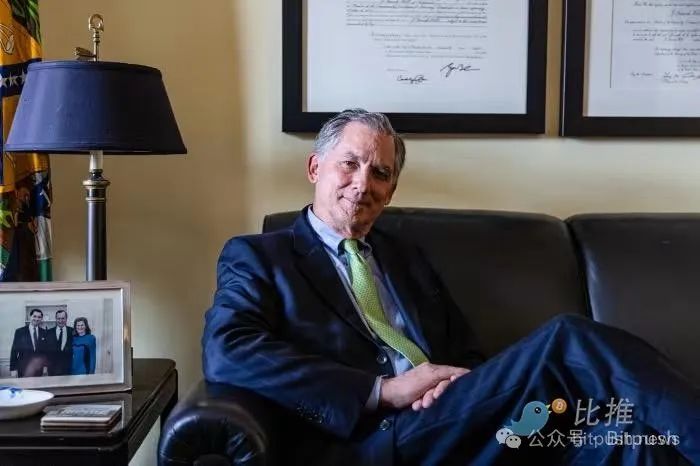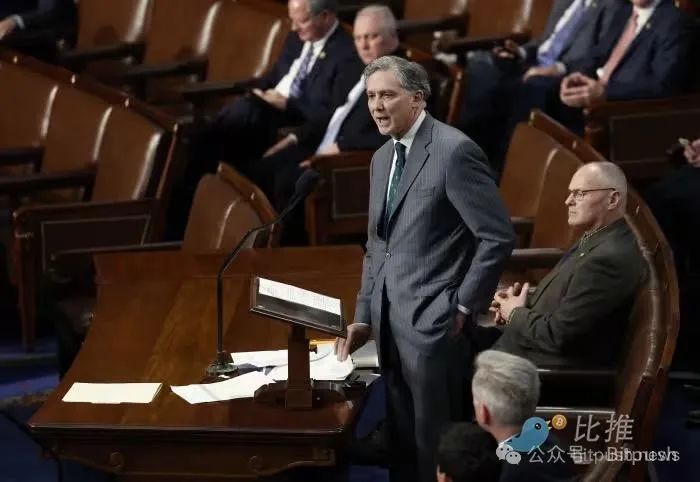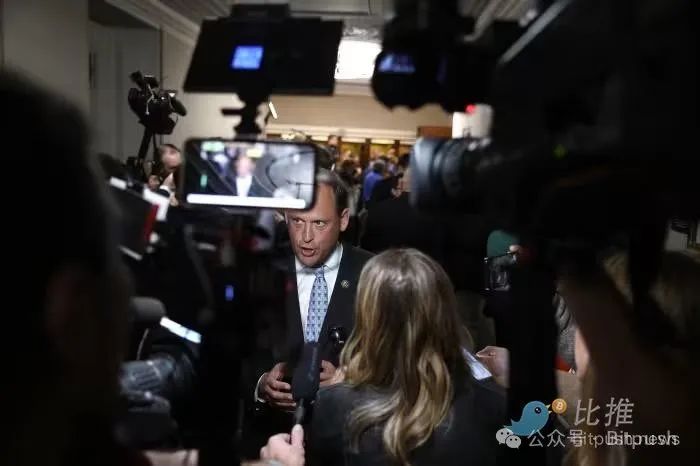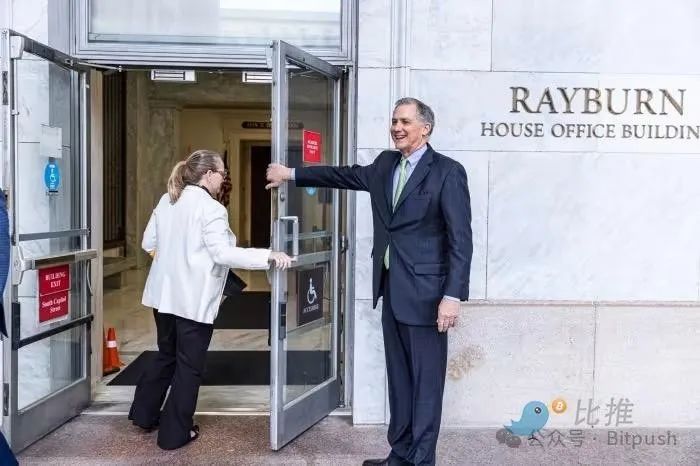“French Hill wants to ‘Make Community Banks Great Again’ and turn his crypto regulation bill into law.”
On the afternoon of December 12th local time, the Republican Party voted to elect French Hill, who is friendly to crypto, as the chairman of the U.S. House Financial Services Committee. Hill will succeed Patrick McHenry of North Carolina. McHenry has served in Congress for 20 years and has served as the chairman of the Republican Financial Services Committee many times. He is about to retire.

Hill has served as chair of the Subcommittee on Digital Assets, Financial Technology, and Inclusion for the past few years and co-sponsored the Financial Innovation and Technology Act of the 21st Century (FIT21), a market structure bill that crypto industry figures hope to push into law. Hill has also introduced or co-sponsored many other bills over the years, touching on various aspects of crypto regulation.
Hill's position still needs to be approved by a vote of all House Republicans before it can become official.
'An unexpected victory'
French Hill – a former community banker from Arkansas – has been seen as the underdog in the chairmanship race.
The House Financial Services Committee works with the Senate Banking Committee to oversee the SEC, and Trump nominated Paul Atkins to lead the SEC last week. The House Financial Services Committee also works with the House and Senate Agriculture Committees to oversee the Commodity Futures Trading Commission (CFTC) and develop financial legislation around areas such as crypto market structure and stablecoin legislation, which then go to the full House or Senate for a vote.
Unlike many of the financiers vying for power around Trump, Hill did not build his reputation by working for a big Wall Street bank or private equity firm. He started a small community bank, spoke with a Southern accent and said he wanted to "make community banks great again."
Hill is considered the underdog in the race for chairman of the House Financial Services Committee against Trump's close ally, Kentucky Rep. Andy Barr. But whether or not Hill wins, his bill on how to regulate cryptocurrencies is likely to pass the new Republican-controlled Congress and reach Trump's desk.

Hill’s mastery of technical detail and complexity impressed crypto enthusiasts and won bipartisan support.
He advocates treating cryptocurrencies as a separate asset class rather than trying to shoehorn them into existing rules for stocks and bonds, and he thinks Congress should investigate the Biden administration’s targeting of the industry.
Hill wants Washington to stop being afraid of cryptocurrencies, or as he prefers, “digital assets.”
“My whole career I’ve been interested in technology and finance, and how technology and finance can cut costs,” he said in an interview.
From Little Rock to Washington
Hill, 67, whose Arkansas district includes parts of Little Rock, was born into a financial family. His grandfather started an investment firm during the Great Depression. His maternal grandfather was the receiver of the Federal Deposit Insurance Corporation, which was founded in 1933.
Earlier in his career, Hill served as a staffer on the Senate Banking Committee and worked on George H.W. Bush's Economic Policy Council and Treasury Department.
He then returned to Little Rock and founded Delta Trust & Bank in 1999, and his banking venture was successful; but in 2014, Hill sold the bank and ran for Congress.
"I don't think he ever got Washington out of his blood," said George Makris Jr., executive chairman of Simmons First National, which acquired Delta Trust.
Hill quietly built his influence in Washington, but he was very low-key. He was not the kind of person who liked to make tough statements. When his two children were still in high school, he went home every weekend to be with his family and wife.
House Majority Whip Tom Emmer called Hill a “good friend and outstanding legislator.”
The frustration of red tape
The sale of Delta Trust helped shape his philosophy on bank regulation.

The deal got bogged down in bureaucratic wrangling over a branch in Eudora, Ark., which Simmons First National couldn't buy because of bank concentration rules, a cumbersome process that affected the branch, which serves the catfish capital of Arkansas, a population of about 2,000.
“Hill has personal experience with some of the outdated rules and regulations that prevent community banks from thriving, especially in rural areas,” said Mark Reese, chairman of Simmons First National.
In 2015, Hill joined the Financial Services Committee, where he is now vice chairman, and hopes to put those ideas into action.
Last year’s bank deposit crisis reignited criticism that some banks were too big to fail, enjoying implicit government support, while smaller banks were left vulnerable and struggling. Regulators tried to address the problem by raising capital requirements, but that attempt is now changing amid industry and Republican objections that the burdens are unfair.
"What is required to properly regulate JPMorgan Chase is not appropriate for a $50 billion bank headquartered in Little Rock or Dallas," Hill said.

Cryptocurrency enthusiasts
In 2023, Hill became chairman of the Digital Assets Subcommittee and began drafting a bill that would exempt certain cryptocurrencies from many securities regulations. Staff and lobbyists said Hill's knowledge and understanding of the crypto industry is uncommon in politics.
“With some members you discuss concepts with them, but with Hill you focus on the details,” said one lobbyist, citing Hill’s arguments about why they are securities rather than commodities.
Hill’s reelection campaign this year received thousands of dollars from the industry, including donations from cryptocurrency exchange Coinbase and venture capitalist Andreessen Horowitz.
The bill Hill authored, the Financial Innovation and Technology for the 21st Century Act (FIT21), passed with the support of 71 Democrats and Republicans. The bill has yet to be voted on in the Senate.
Washington staffers and lobbyists said the bipartisan support shows Hill is skilled at building consensus. With Republicans now poised to take control of the Senate and Trump pledging to support the industry, Hill's bill now appears more likely to pass.
“I like being the boss, and I don’t mind working behind the scenes.”
The Finance Committee chairman will be decided in early December by the Steering Committee, a group of about 30 Republicans that is responsible for deciding who will chair committees in the new Congress.

Hill's main rival is Barr of Kentucky, who has been running as a close ally of Trump.
Inside the Capitol, there was talk of the obstacles facing both candidates.
For Hill, some wonder if he will regret a decision he made in October 2023 to vote “neutral” during an early roll-call vote during Louisiana Rep. Mike Johnson’s run for House speaker. He ultimately endorsed Johnson for speaker later that month.
For Barr, his chances could be hurt by speculation that he might run for Sen. Mitch McConnell, R-Ky.,’s Senate seat if the Kentucky Republican retires in two years.

If Hill fails, he will likely continue to stay out of the public eye. But he said: "I love being the boss and I love being in a leadership position, but I'm also very, very content to do this behind the scenes."
In an Unchained podcast in July, Hill promised that the market structure bill and the stablecoin bill would be the first two bills he wanted to pass during his presidency. Market structure legislation could determine whether cryptocurrencies are securities or commodities, while stablecoin legislation would set requirements for the amount and type of collateral that companies issuing such currencies must maintain.
Allegations of debanking have also become a priority for Hill. At a hearing earlier this month, Hill expressed concerns about the debanking of the cryptocurrency industry and said he planned to carefully examine the issue in the new year.
"Legitimate businesses in this great country of America should have the freedom to bank and access financial services," Hill said at the hearing. "We've seen that time and time again."















